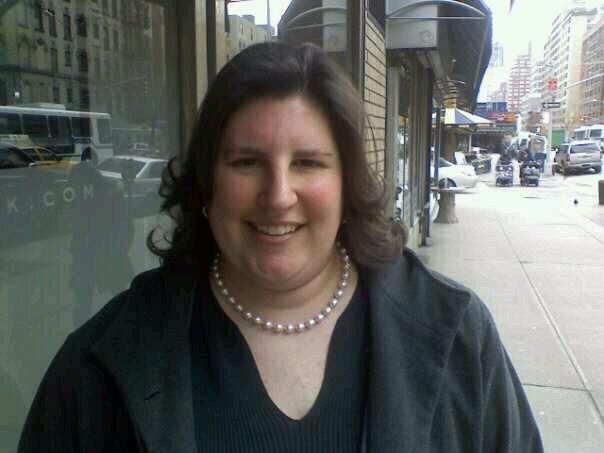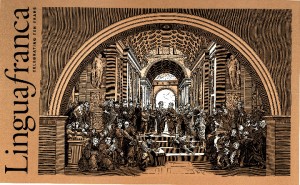Read Ceceilia Berkowitz’s archived tweet feed here: http://www.vpul.upenn.edu/careerservices/CeceiliaBerkowitz_Feed.pdf
Teaching isn’t just for the K-12 level, many colleges and universities offer teaching positions for individuals with graduate degrees – and you don’t need to have a Ph.D. necessarily either. Next week on Wednesday, March 30th @PennCareerDay on Twitter welcomes Ceceilia Berkowitz who teaches higher education courses in New Jersey. Follow her to learn about this great career path and how she’s managed to transition from a private sector career into one in education. To learn more about Ceceilia, read below and don’t forget to follow her on the 30th!
 Ceceilia Berkowitz (C ’00, W ’00) is a College Mathematics, Statistics, and Business Mathematics Instructor at several Northern NJ Colleges. She currently is teaching 18 developmental math credits this Spring semester at William Paterson University and Union County College. In recent years, she has also been tutoring high potential minority and international low-income undergraduate students in math and business subjects for the Educational Opportunity Fund Program at Seton Hall University. She has also taught Business Calculus and Developmental Math at other schools including Seton Hall University and Felician College.
Ceceilia Berkowitz (C ’00, W ’00) is a College Mathematics, Statistics, and Business Mathematics Instructor at several Northern NJ Colleges. She currently is teaching 18 developmental math credits this Spring semester at William Paterson University and Union County College. In recent years, she has also been tutoring high potential minority and international low-income undergraduate students in math and business subjects for the Educational Opportunity Fund Program at Seton Hall University. She has also taught Business Calculus and Developmental Math at other schools including Seton Hall University and Felician College.
As a Class of 2000 graduate of the Huntsman Program in International Studies and Business at Penn, Ceceilia is also considering teaching College Business courses or even French courses as her schedule permits at the nearby colleges. She has been working for Medows CPA, PLLC, a boutique New York City accounting firm as a Training Manager, with Senior Accountant and Marketing Assistant responsibilities.
In addition to her Penn undergraduate degrees, Ceceilia has an MBA in Professional Accounting from Rutgers Business School, where she was a Dean’s Scholarship Recipient. She has over four years of work experience in telephone and E-commerce sales and customer service at Tiffany & Co, Weichert Realtors, and MetLife, mostly before she entered the 2007-2008 MBA program. She also has worked in jobs and internships, mainly in accounting and finance at the U.S. Securities & Exchange Commission, Merrill Lynch, Prudential’s 1999 IPO Team in the Controller’s Office, a medium-sized NJ CPA firm, and HotJobs.com (now part of Yahoo!).
At Penn, Ceceilia was involved as Treasurer of the Women’s Club Tennis Team, participated in Wharton Women, visited nursing homes with Penn students in Bridges Community Service group, played French Horn her Freshman year in the Penn Wind Ensemble and also in the Penn Law School production of Guys & Dolls, lived in the Maison Francaise French House on-campus residence her Senior year, and studied abroad in Aix-en-Provence, France, during the second semester of her Junior year. She also enjoyed Penn’s campus social life at the local restaurants and coffee shops, and parties of all kinds at frat houses, friends’ apartments, and at the Huntsman Program office, as well as occasionally attending Penn Football and Basketball games. She mainly studied in the main Penn library on various floors, though also occasionally at Center City Xando Cosi locations and Bucks County Coffee, both Wharton buildings at the time, as well as some solitary studying in the upstairs very heated mathematics library in DRL. She frequently explored Center City restaurants and shops including her favorite restaurant Monks Cafe, and the Liberty Place JCrew.
Follow Ceceilia on Twitter for more information – @ceceilia










